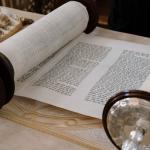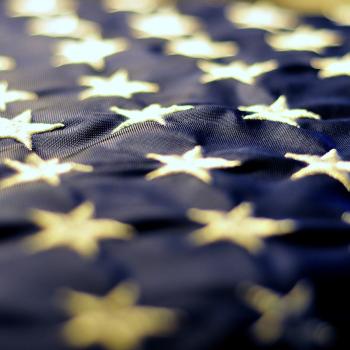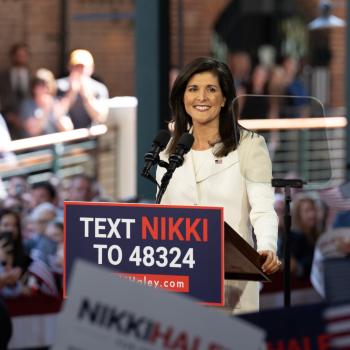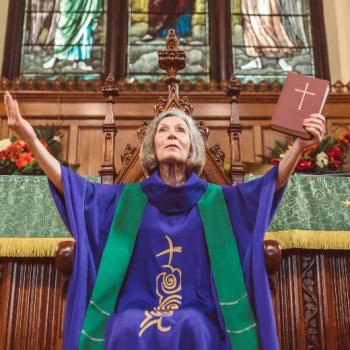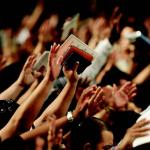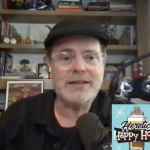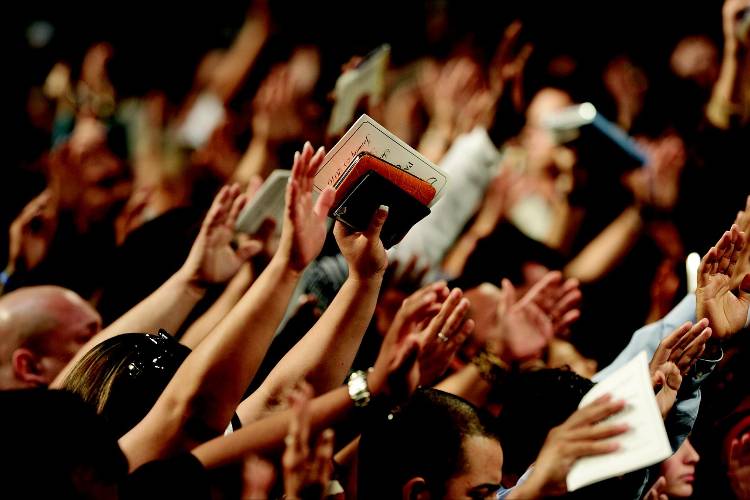
THE RELIGION GUY’S ANSWER:
Hard to say. But important, since evangelical Protestants are the largest and most dynamic sector of American religion amid the challenges of growing secularization. Also the most complicated sector. So let’s sketch some intriguing discussions about an evolving cultural crisis.
In recent weeks, two outside observers who specialize in Christian-Muslim relations wrote articles exploring this. Asma Uddin is a visiting law professor at Catholic University writing in Salt Lake City’s Deseret News. Shadi Hamid of The Washington Post is the first Muslim appointed to conduct research for the evangelical Fuller Theological Seminary.
White evangelicals’ lopsided Trump voting, whether enthusiastic or reluctant, is oft mentioned. These writers join those who go a step further, observing that for sizable numbers who identify as evangelicals this is now not so much belief in Christian teachings as socio-political conservatism reinforced by Trump alignment. Like Trump, many think of themselves as Christians but are unchurched and thus spiritually homeless.
Evangelical Erosion
Related: Political scientist Ryan Burge extracts poll data from the standard Cooperative Congressional Election Study showing that 58.6% of self-identified evangelicals said they attended worship weekly or more often as recently as 2008, but only 49.9% a dozen years later, just as the frightening spread of Covid disease and death forced ruinous shutdowns of Sunday church services.
Such numbers (and we could add much more) tell us profound erosion afflicts a Protestant movement so long famed for disciplined and well-defined biblical beliefs and devotional practices. Will the older traditionalism rebound and acculturated evangelicalism fade once the Trump era concludes? Or is “evangelical” destined to persist as a rather secularized and politicized identity for many Americans? If so, how will that affect Christian faith and outreach when the majority of Americans have given Trump such dismal “unfavorable” ratings?
As a journalistic observer, The Religion Guy has written several articles about a 21st Century “evangelical crack-up,” referring to scandals, organizational confusion, and eccentricity. And, of course, politics. A generation of talented leaders in denominations, megachurches, schools, and a vast network of “parachurch” agencies had built a vibrant movement across the half-century after World War Two. Most people in today’s leadership class declined to embrace Trump and became alienated from the MAGAfied grass roots. Many local pastors face the same gap.
Where do evangelical insiders think their cause is headed? Here we have, for instance, perceptions expressed at MereOrthodoxy.com. Back in 2021, this Website posted an important analysis claiming that U.S. evangelicalism is fracturing into four camps that “are not merely dividing but becoming incomprehensible to one another.” Moreover, the split “is likely to be irrevocable.”
So said Michael Graham and Skyler Flowers of The Gospel Coalition’s Keller Center for Cultural Apologetics. MereOrthodoxy’s editor-in-chief, Jake Meador, updated their scenario in a May 21 piece. The following leaves aside “exvangelical” or “dechurched” dropouts who may or may not retain some evangelical influences. Also note that individuals may fall somewhere between the four camps that Graham and Flowers define as follows:
The four camps
“Neo-Fundamentalists” — This gets tricky because forebears of today’s evangelicals were known as “fundamentalists.” Eventually most in that movement preferred “evangelical” to signify continued doctrinal orthodoxy with a more flexible approach to non-essentials and less isolationism toward more liberal Protestants, creating “big tent” evangelicalism.
The authors see a growing “resurgence” of this wing as concern about liberalism in church and society pulls more and more evangelicals toward a mindset of harder-line and defensive conservatism, exacerbated by “the culture’s increasing hostility to Christianity” seen in the mass media and government. This group is somewhat more tolerant than the still-existing strict fundamentalism on, for instance, lifestyle matters and End-Times theology.
“Mainstream Evangelicals” – This wing emphasizes evangelism and harbors “some concern for the secular right’s influence on Christianity, including the destructive pull of Christian Nationalism” and problems with the Trump phenomenon, but with far more worry about the power of the secular Left.
“Neo-Evangelicals” — These doctrinal conservatives may be wary of the “evangelical” label as too politicized in the American context and are concerned by evangelicalism’s “failure to engage on topics of race and sexuality in helpful ways.” These types are equally alarmed at threats to what they regard as authentic Christianity whether from the right or the left.
“Progressive Evangelicals” or “Post-Evangelicals” – To varying agrees these believers have migrated away from the doctrine and culture of the older evangelicalism, which they attack as corrupt, misogynistic, or racially insensitive. The secular right is far more worrisome to this camp than the radical secular left.
In his update, Meador says it’s “very hard to resist a creeping extremism” and consolidate the two middle groups. “Neo-Evangelicals are generally not good at resisting Progressive Evangelicals” on the left, he asserts, while “Mainstream Evangelicals are generally bad at resisting Neo-Fundamentalists” on the right. So is there then a center, and can it hold?
Who is reading what?
Meador says that specific book and curriculum publishers typify those four branches.
Neo-Fundamentalists influence, and are influenced by, the Canon Press of Moscow, Idaho, which promotes old-fashioned gender roles and male dominion. Its star personality is local pastor Douglas Wilson, whose writings on slavery have caused critics to brand him as a racially unreconstructed neo-Confederate.
Mainstream Evangelicals appreciate Crossway, based in the evangelical citadel of Wheaton, Illinois, with output that includes the English Standard Version, a Bible translation favored by Protestant conservatives. The company believes the Bible’s books as originally written were “inerrant” (free of error on history as well as spiritual matters).
Neo-Evangelicals are typified by pertinent books from InterVarsity Press, the publishing arm of the InterVarsity Christian Fellowship campus ministry with offices in Lisle, Illinois (near Wheaton). Current titles include “Awakening to Justice” (about the evangelical campaign to end slavery), “Ownership” (about past evangelical heroes’ support for slavery), “Confronting Sexism in the Church,” “Disarming Leviathan” (on Christian nationalists), and “Untangling Critical Race Theory.”
Progressive Evangelicals appreciate a publisher like Convergent, an imprint of the Random House group aimed at those who seek meaning in their “inner lives” through books on “spirituality, personal growth, self-help, relationships, social commentary, memoir, and lifestyle.”
The Guy adds comments to what the above authors are saying.
Their analysis tends to characterize Protestants in terms of denominations and national organizations. But the U.S. Religion Census of 2020 reshaped the landscape by tabulating 44,319 local congregations that are non-denominational and independent. With 21,095,641 members, they form by far the largest body of U.S. Protestants, are hugely influential and almost totally evangelical.
One distinctive subgroup within this wildly variegated category fosters flamboyant advocacy of the “religious right,” “Christian nationalism” and Trumpite Republicanism. Many are part of the Charismatic renewal, which emphasizes gifts of the Holy Spirit that originated in Pentecostal denominations, including latter-day prophecies that can shape attitudes toward societal developments.



